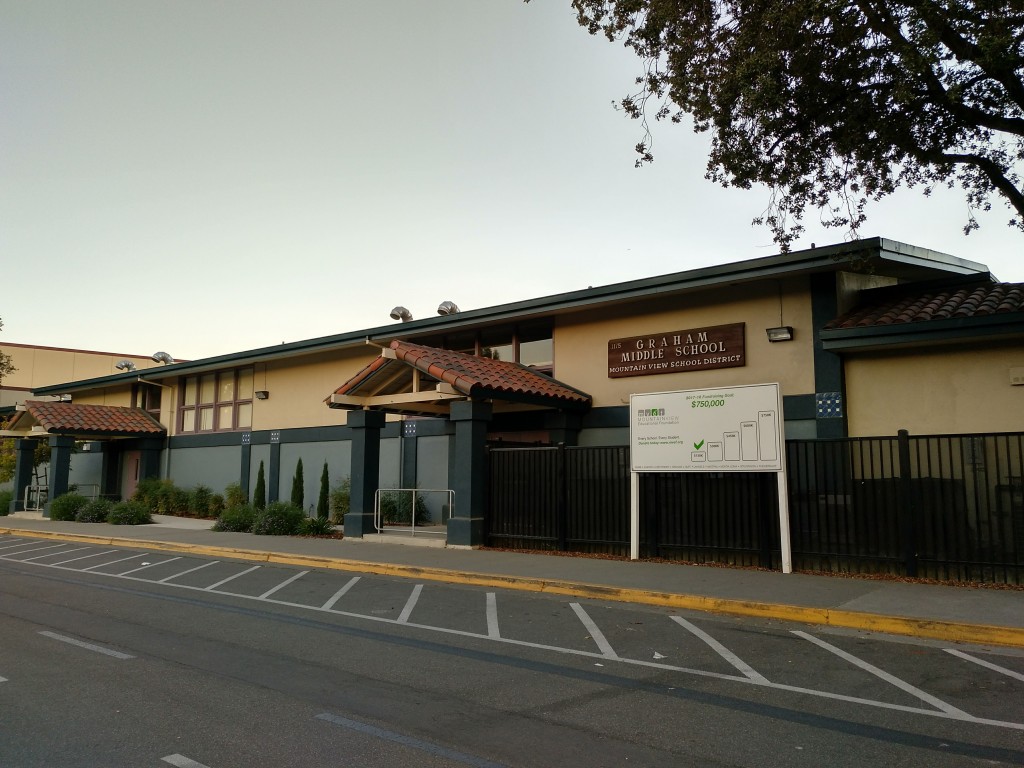
MOUNTAIN VIEW – As housing prices continue to surge in the Bay Area, Mountain View schools are exploring ways to provide affordable residences for its teachers.
The Mountain View Whisman School District has presented the school board with options for addressing the housing crisis for teachers, including possible compensation for extended commutes, childcare services or the development of apartments below market value in Mountain View.
The district wants to recruit and retain high-skilled professionals but has faced difficulties because of the area’s housing crunch. Even though Whisman is fully staffed, officials say it is more difficult to attract good teachers now more than ever.
At its school board meeting on Oct. 5, board members agreed to conduct a feasibility study. The research, which is expected to be finished in two to five months, will look into the potential development of teacher housing on district-owned property – a 9.5 acre-site that currently houses a preschool program but is 80 to 85 percent empty – at Eunice Avenue in Mountain View.
The initiative is one example of how cities are struggling to address skyrocketing cost of living in the Bay Area. The median price of single-family homes in Santa Clara County rose 17.9 percent between Aug. 2016 and Aug. 2017, according to data of the California Association of Realtors. For a Mountain View teacher with an average annual salary of $69,000, only 1.3 percent of the houses in Santa Clara would be eligible for purchase.

“It would take me 10 years to put aside money (to make a down payment for a house),” said Superintendent Ayindé Rudolph at the Oct. 5 meeting. “And that is with my salary ($234,720 anunually). Imagine someone who’s making less than that.”
“For teachers, many of them who are just starting out, the idea and concept of purchasing a house in Mountain View is out of the question, it’s not reachable,” said José Gutiérrez, president of the Mountain View Whisman School District Board of Trustees.
In a poll conducted last winter, 75 percent of Whisman’s teachers said they’d be interested in district-provided housing.
“There is a large group of teachers that would like to live around here and they just can’t afford it,” said Edgar Gomez, a social studies teacher at Mountain View’s Graham Middle School.
This year, Gomez, 30, was “lucky enough” to get a below-market-rate house offered by the City of Mountain View for teachers, which eliminated his 45-minute commute from Campbell, where he used to share an apartment. “If I didn’t get this assistance through the city of Mountain View, I wouldn’t be able to live there,” Gomez said.
His school loses many teachers every year because they can’t afford to live in the area, Gomez said. “We’re losing quality teachers because of what’s going on,” he added.

Other school districts in the South Bay are facing the same problems, and are trying to find ways to keep high-skilled professionals. In the past, San Jose and Cupertino – districts that are competing for the same labor pool – have proposed and then canceled plans to provide affordable housing for teachers because the opponents said the developments would take land usable for more valuable projects.
“There is no panacea to this problem,” said Rudolph during the Oct. 5 meeting. “We can’t build 600 apartments for employees, it’s not feasible,” he told the Peninsula Press.

Since building housing will not solve the problem for every teacher in the county, according to Rudolph, it is necessary to take a “multi-pronged approach” and explore other initiatives. These would include compensation for commuting or a full-day childcare.
“(Finding solutions) is a priority for (the city), it’s definitely a priority for the teachers, for our board, but also a priority for our community, who is concerned that as people are priced out, it’s going to be harder and harder to retain teachers,” Rudolph added.
